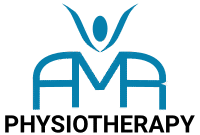MCL Exercises
Medial Collateral Ligament (MCL) Injuries
MCL rehab is needed when the ligament is injured. Often the inner knee pain is linked to a strain or injury of the medial collateral ligament (MCL). This ligament is essential for knee stability, and injuries can significantly impact mobility and function. Below, we’ll cover the causes, symptoms, and exercises to help you recover from an MCL injury. Find the best MCL exercises for the rehab in this blog!
What is the MCL?
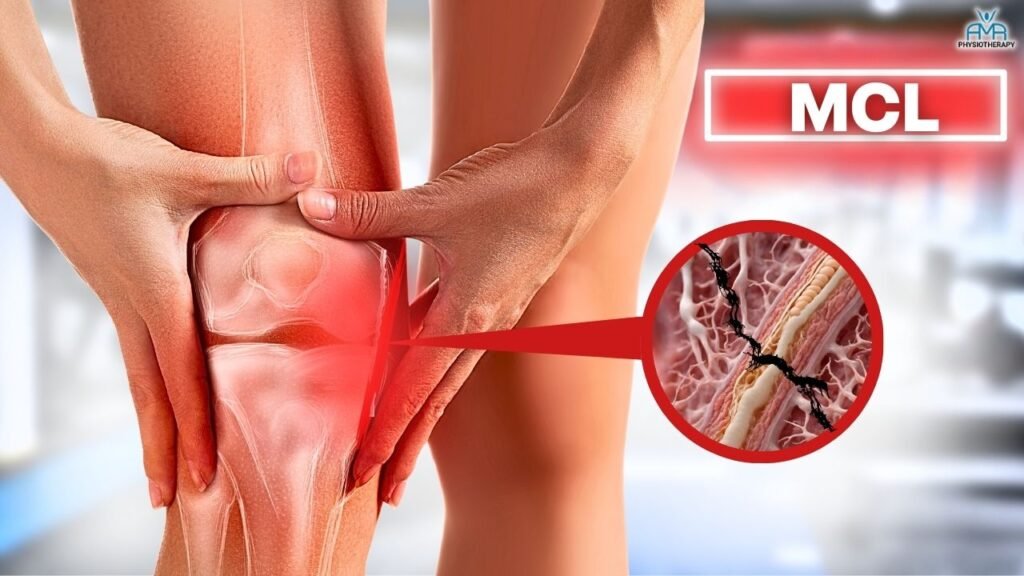
The medial collateral ligament (MCL) is a key stabilizing structure on your knee’s inner side. Its primary function is to prevent excessive inward movement of the knee.
Common Causes of MCL Injuries
- External Force: A blow to the outer knee can push it inward, leading to MCL strain or tears.
- Valgus Motion: Inward knee collapse under stress overstretches the ligament.
Recognising MCL Injuries
- Pain: Localized on the inner knee, aggravated by inward pressure or movement.
- Limited Knee Flexion: Deep bending may increase discomfort by stretching the ligament.
- Tenderness and Swelling: Focused around the inner knee joint.
Confirming an MCL injury often involves clinical tests or imaging like an MRI. However, you can self-assess by applying gentle inward pressure on the knee or testing for pain during deep bends.
Recovery and Treatment
When surgery isn’t necessary, treatment focuses on reducing irritation, managing pain, and gradually rebuilding strength and mobility. Depending on the severity of the injury, recovery time can range from several weeks to months.
Tips for Recovery
- Avoid Irritants: Limit movements or activities that exacerbate pain.
- Use Support Sparingly: Braces can help with stability but should not replace strengthening exercises.
- Be Patient: Recovery is gradual; consistency is crucial for progress.
Five Essential Exercises for MCL Rehab
These exercises promote recovery while protecting the ligament from further stress. Start gently and progress as tolerated.
1. Heel Slides
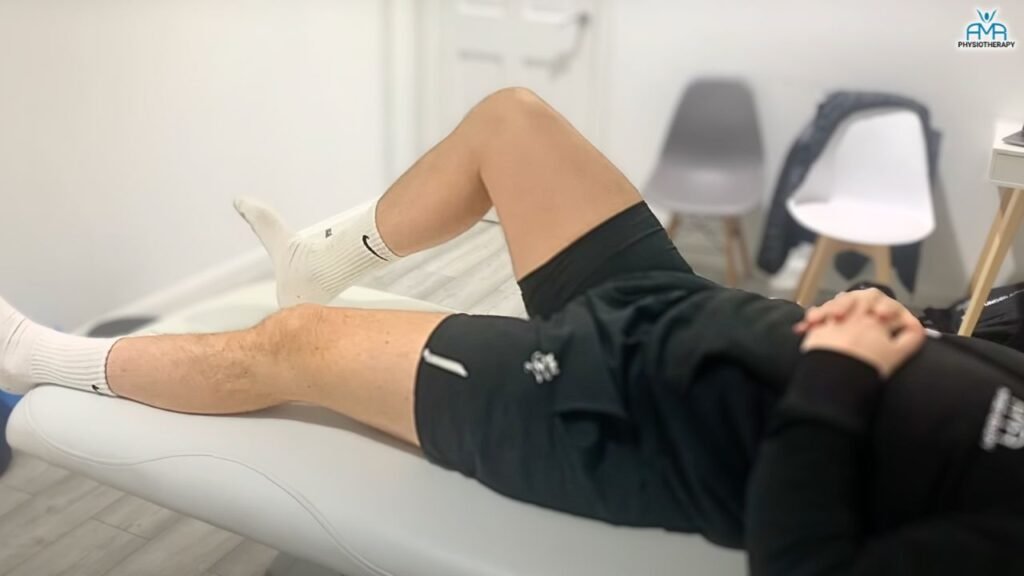
- How to Do It: Lie on your back and slide your heel towards your body as far as is comfortable, avoiding pain above 3/10. Return to the start.
- Purpose: Gradually restores knee flexion.
- Progression: Increase the range of motion over time.
2. Straight Leg Raises
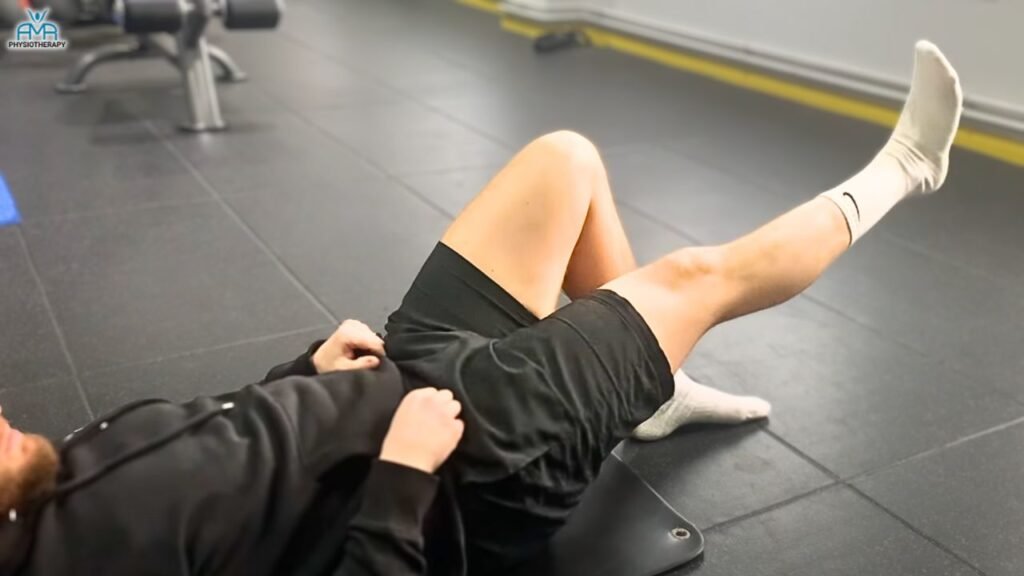
- How to Do It: Lie flat, straighten your leg, and lift it upwards. Hold briefly at the top, then lower it back down.
- Purpose: Strengthens quadriceps without stressing the MCL.
- Progression: Add holds or repetitions as tolerated.
3. Step-Downs
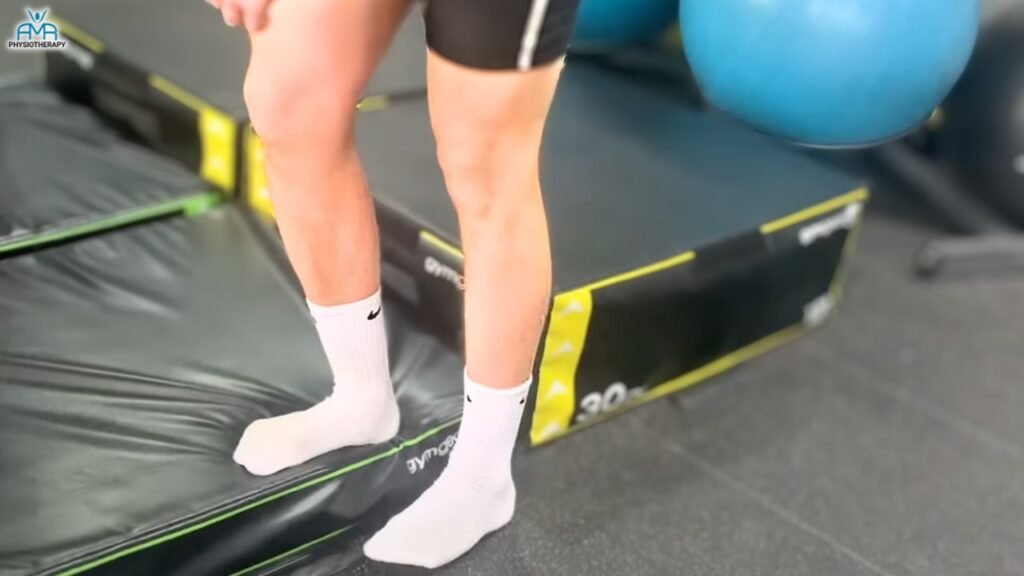
- How to Do It: Stand on a low step and slowly lower yourself on one leg until the opposite heel lightly touches the floor. Return to standing.
- Purpose: Improves knee stability and strengthens glutes and quads.
- Progression: Use a higher step or add weights.
4. Glute Bridges
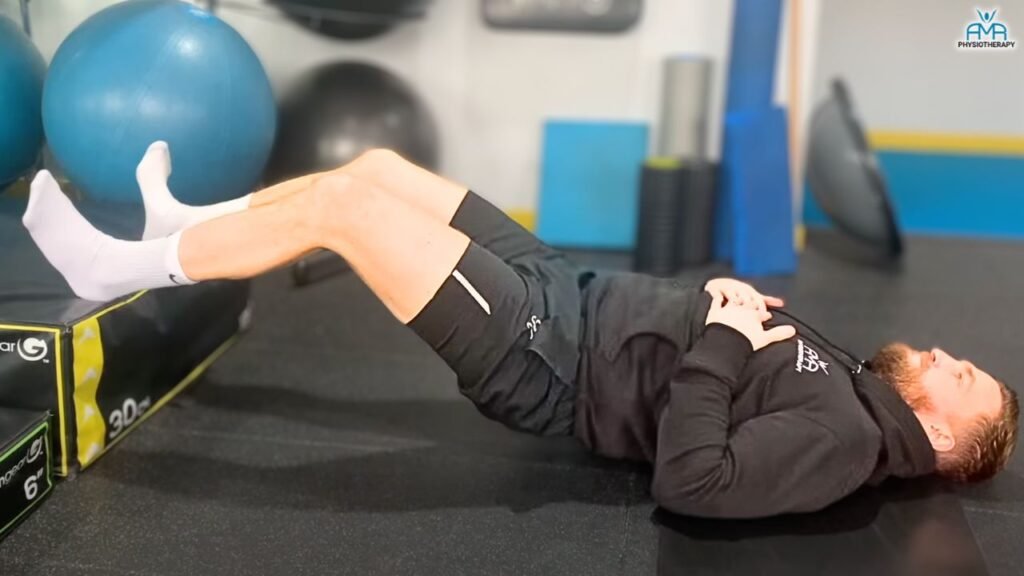
- How to Do It: Lie on your back with your feet on a stable surface. Lift your hips off the floor and hold briefly before lowering.
- Purpose: Targets hamstrings and glutes for support and stability.
- Progression: Advance to single-leg bridges or add resistance.
5. Controlled Squats
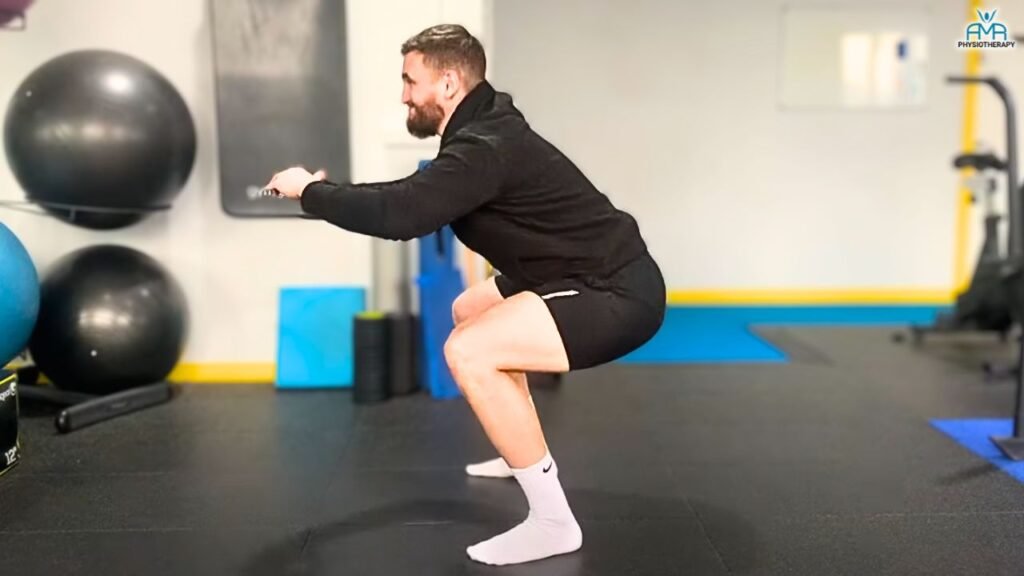
- How to Do It: Start with shallow squats, avoiding inward knee collapse. Increase depth as pain decreases.
- Purpose: Builds strength and knee control.
- Progression: Incorporate weights or deeper ranges over time.
Structuring Your MCL Rehab
Effective rehab requires consistency and gradual progress. Here’s how to ensure a safe recovery:
- Monitor Pain: Keep exercises within a 3/10 pain threshold.
- Progress Gradually: Slowly increase the difficulty by adding depth, weight, or repetitions.
- Stay Consistent: Small, consistent efforts yield the best results.
For athletes, later stages of rehab should include sport-specific drills and dynamic movements to prepare for a return to play.
Additional Recovery Tools
- Strapping or Bracing: Provides support during early stages but should be phased out as strength improves.
- Professional Help: Seek advice from a sports therapist or physiotherapist for personalized plans.
With a proper understanding of your injury and a structured recovery plan, you can rebuild knee strength and mobility while minimizing re-injury risks. Progress may take time, but each step is a move closer to full recovery.
For personalised support or advanced rehab guidance, book into our Nottingham clinic. You can contact us on 0115 901 7867 or info@amrphysionottingham.co.uk
